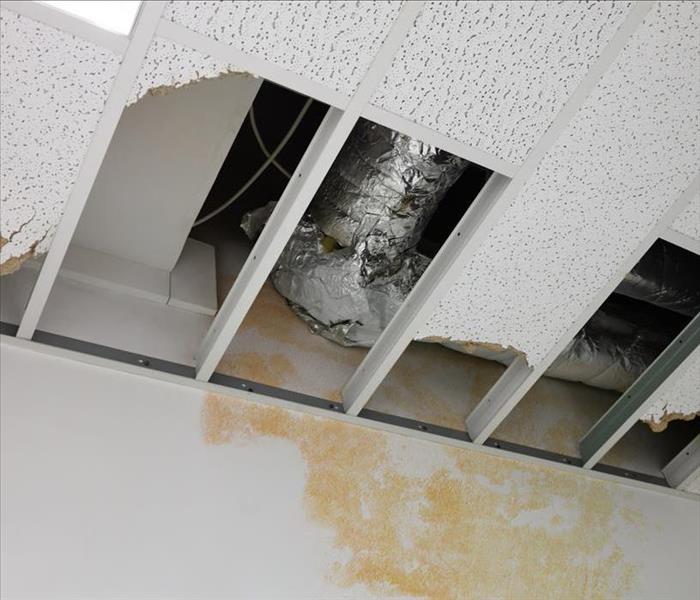4 Common Commercial Water Losses
12/16/2020 (Permalink)
No matter how careful you are or how faithfully you adhere to a regular maintenance and repair schedule, water losses can still happen. Whether your problem is caused by damaged pipes or disastrous weather, water restoration specialists in Roanoke Rapids, NC, can help by repairing the damage and getting your building back to normal.
4 Potential Water Losses
1. Sewer Backups
Unless you built your structure from the ground up, you may not have a lot of control on the pipes underneath it. Sewer backups can happen for many reasons:
- Old, worn-out sewer lines
- Tree root encroachment
- Flooding from overtaxed municipal sewer
- Clogged sinks or toilets
If your drains or toilets keep backing up with no discernible cause or you smell sewage, the line itself is likely clogged. A plumber can offer the best advice for solving the problem.
2. Frozen Pipes
Keeping pipes warm enough during cold months so that they don't freeze or burst should be a part of your winterization maintenance plan. Damaged pipes can cause significant water loss before you even know you have a problem. You can prevent this issue by keeping the heater on overnight and making sure that pipes are properly insulated, especially if they are located near external walls.
3. Slow Leaks
Even a small pinhole in a pipe can lead to water damage. Slow leaks are often the hardest to detect because they seep into walls, floors and ceilings over time, weakening the structure. If your water bill seems to go up without just cause, this could be a sign that you have leaking pipes somewhere.
4. Inclement Weather
Heavy storms, particularly those with significant precipitation or hail, can flood your building. Consider having barriers such as sandbags ready for storm season to slow the flow of floodwaters. It's also a good idea to purchase flood insurance, as most commercial property policies exclude this type of damage.
A solid maintenance schedule is a good start, but it's also important to know what to do in case disaster strikes. Understand the potential water losses in your building and plan how you will handle them if they happen.




 24/7 Emergency Service
24/7 Emergency Service
